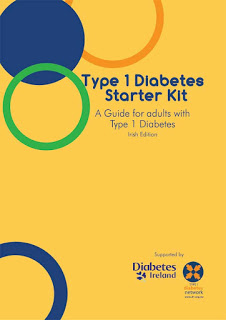I recently had a conversation with my consultant endocrinologist’s secretary that left me so annoyed, I had to wait until I calmed down to write about it.
On Thursday, 27 May 2010, I received a phone call from my endocrinologist’s office. It went something very close to this;
Secretary; “Gráinne, I’m calling with your fasting bloods results.”
Me: “my what? The bloods weren’t fasting- do you mean my HbA1c?”
Secretary: Your Hb mm… yes. The result is 7.0 mmols and the Dr. says you have to do better.
Me: What!
The conversation continued for a couple more minutes and I remained polite and civil because I knew the secretary was just doing what she was asked to do - blindly.
Firstly, I was so upset that I really didn’t know how best to react. How do you react to being told that “you have to do better”, especially when you think you’re doing everything you possibly can to begin with. Being told this made me feel like having diabetes is all my fault, and that I’m clearly not managing it very well so again that must be all my fault too. It also made me want to head straight for that chocolate tin or the pint of ice cream.
Secondly, if I asked the secretary how I should do better, I doubt he/she would have advice and instructions about my diabetes management should come directly from my endocrinologist and not from someone who isn't qualified to answer follow up questions. Afterall, that's what I'm paying for (yes this is the private health system in Ireland I'm talking about).
And thirdly, how am I supposed to do better with a one sentence instruction? This doctor gives no specific instruction other than to have lots of bananas (???). Dr. X doesn’t talk about carb counting, sliding scales, insulin to carb ratios, testing or anything useful. I need a conversation on how I can do better that offers me options and realistic goals.
I think it’s time that I said to my endocrinologist that he/she should do better – I am paying €100 per visit and maybe it’s time it was earned. Maybe, it’s time that she trained her staff appropriately too. And while I’m at it, maybe it’s time she acquired some better time management skills instead of taking patient phone calls during consultations.
I should give my hubby a break and direct my rantings and ravings at the person responsible for them.
Update - I did leave this endocrinologist shortly afterwards for one who is so much better and when the secretary called one last time with my lab results with the same message I did reply “yes, it’s not good enough”. She then asked if I wanted to schedule my next appointment, I said “No, thanks!” and hung up :-) It felt FANTASTIC!!!




